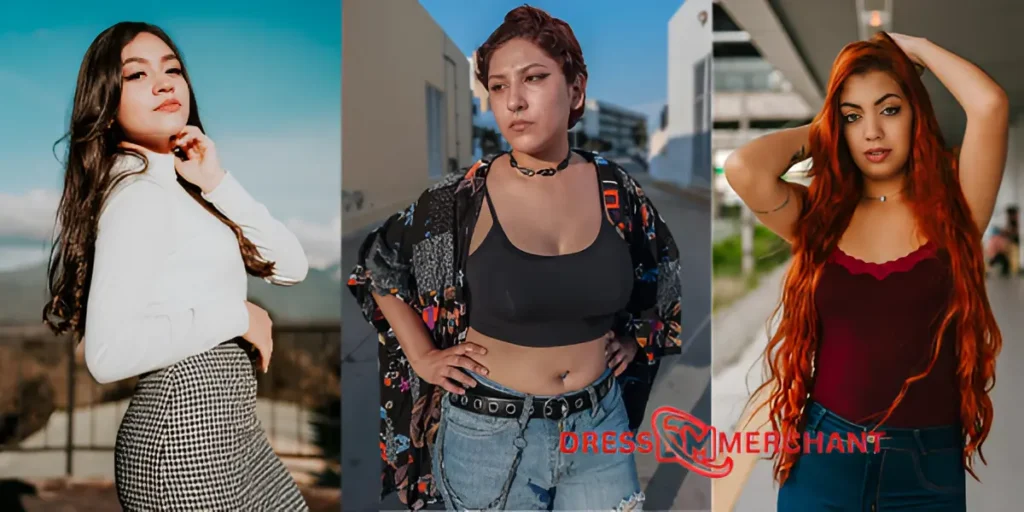Sustainable Apparel Manufacturer in Bangladesh – Dress Merchant is a leading apparel sourcing agent, connecting global brands with top-tier garment manufacturers and exporters. We specialize in eco-friendly production, high-quality fabrics, and ethical manufacturing practices. Our expertise ensures timely delivery, competitive pricing, and customized solutions for sustainable fashion, making us the trusted partner for businesses seeking responsible and reliable apparel sourcing.
Thank you for reading this post, don't forget to subscribe!1. Overview of Sustainable Apparel Manufacturing in Bangladesh
Bangladesh has emerged as a global leader in the sustainable apparel manufacturing industry, setting new benchmarks for environmental responsibility and ethical production. The country’s garment sector has evolved beyond mass production to embrace eco-friendly and socially responsible practices that align with global sustainability goals. As global fashion brands increasingly prioritize green sourcing, sustainable clothing manufacturers in Bangladesh have become preferred partners due to their commitment to reducing carbon footprints and promoting fair labor practices.
With over 200 LEED-certified green factories—the highest in the world—Bangladesh stands at the forefront of eco-friendly garment production. These manufacturers focus on minimizing water usage, recycling textile waste, and implementing renewable energy sources within their production facilities. Moreover, local initiatives supported by international organizations are helping the industry transition toward circular fashion systems that prioritize reusability and biodegradability.
From ethical sourcing to transparent supply chains, Bangladeshi manufacturers have proven that sustainability and competitiveness can coexist. As the global apparel market evolves, the country’s proactive approach to sustainable garment production not only strengthens its export potential but also cements its reputation as a responsible manufacturing destination for leading international brands.
2. Key Practices Adopted by Sustainable Garment Manufacturers
Sustainable garment manufacturers in Bangladesh have integrated innovative practices to balance efficiency, quality, and environmental responsibility. These practices extend beyond green energy adoption to include comprehensive approaches that minimize ecological impact throughout the production lifecycle. A major focus is on sustainable textile sourcing, where organic cotton, bamboo fiber, and recycled polyester are prioritized to reduce dependency on conventional materials.
Moreover, factories are investing in closed-loop production systems—technologies that recycle water, reuse chemicals, and reduce fabric waste. Many leading manufacturers have also established in-house wastewater treatment plants to ensure zero discharge of harmful substances. Beyond environmental efforts, sustainability also encompasses social responsibility; thus, fair wages, gender equality, and safe working environments remain central to their operational models.
Digitization also plays a crucial role in sustainability. Smart production management systems reduce resource wastage and enhance transparency for buyers. Through these responsible initiatives, Bangladeshi sustainable apparel factories not only meet global compliance standards but also demonstrate how sustainability can coexist with large-scale industrial production, positioning Bangladesh as a model for the global textile industry.
3. Eco-Friendly Materials and Fabrics Used in Bangladesh
The foundation of sustainable apparel manufacturing in Bangladesh lies in the use of environmentally conscious raw materials. Manufacturers are increasingly sourcing organic cotton, hemp, bamboo, and recycled polyester to meet the growing demand for eco-friendly textiles. These materials significantly reduce environmental stress by consuming less water, minimizing chemical use, and ensuring biodegradability.
Organic cotton, for instance, eliminates the need for harmful pesticides, while bamboo fabric offers natural antibacterial properties. Additionally, recycled polyester—made from repurposed plastic bottles—helps divert waste from landfills and oceans. Many eco-friendly garment manufacturers in Bangladesh are partnering with international suppliers certified by the Global Organic Textile Standard (GOTS) and OEKO-TEX to guarantee quality and sustainability.
Innovative fabric blends like Tencel, Lyocell, and modal are also gaining traction due to their softness, durability, and low environmental footprint. By adopting such sustainable materials, Bangladeshi manufacturers align themselves with global sustainability initiatives while offering international buyers premium-quality apparel that satisfies both aesthetic and ethical standards. As global consumers become more eco-aware, these sustainable fabrics from Bangladesh continue to redefine the future of responsible fashion.
4. Energy Efficiency and Waste Reduction in Apparel Production
Energy efficiency and waste management are two core pillars of sustainable garment manufacturing in Bangladesh. To reduce carbon emissions, many factories have adopted renewable energy systems, including solar power installations and energy-efficient machinery. These efforts contribute to lower operational costs while ensuring compliance with global sustainability benchmarks such as ISO 14001 and LEED certifications.
Equally important is the focus on waste reduction. Zero-waste garment production initiatives are gaining momentum, where fabric scraps are repurposed for accessories, home textiles, or recycled yarns. Cutting-edge machinery and CAD-based pattern systems help minimize fabric wastage during the cutting phase, while advanced recycling programs convert textile remnants into reusable materials.
Furthermore, wastewater treatment plants and air filtration systems ensure that harmful byproducts are neutralized before disposal, protecting both workers and the environment. Through these comprehensive sustainability measures, Bangladeshi eco-conscious apparel manufacturers are transforming industrial processes into models of environmental stewardship, demonstrating that profitability and sustainability can harmoniously coexist in modern garment production.
5. The Role of Fair Labor Practices in Sustainable Manufacturing
True sustainability extends beyond environmental factors—it encompasses human welfare and ethical labor practices. Sustainable apparel manufacturers in Bangladesh uphold fair labor policies that ensure safe, equitable, and respectful working environments. This includes offering competitive wages, maintaining gender inclusivity, and adhering to international labor compliance standards such as SA8000 and WRAP.
Factories have invested in worker training programs, childcare facilities, and health benefits, fostering a positive workplace culture. Many ethical garment manufacturers have moved toward greater transparency by allowing buyers to audit their factories and trace production stages digitally.
By promoting empowerment, these manufacturers support local communities while strengthening long-term business relationships. The emphasis on human rights, diversity, and social responsibility has elevated Bangladesh’s reputation as a country that values its workforce as much as its production capabilities. In the global context, this human-centered approach is what truly distinguishes ethical apparel manufacturing in Bangladesh as a cornerstone of sustainable development in the fashion industry.
6. Certifications and Standards for Sustainable Apparel in Bangladesh
Certifications serve as a vital benchmark for sustainable apparel manufacturers in Bangladesh to demonstrate their commitment to ethical and eco-friendly practices. Factories across the country hold globally recognized certifications such as LEED, GOTS, OEKO-TEX, Fair Trade, and BSCI, ensuring adherence to environmental and social compliance standards.
LEED-certified factories are celebrated for energy-efficient architecture and water conservation systems. Similarly, GOTS certification ensures that textiles are made from organically grown fibers, free from harmful chemicals. Sustainable garment producers also comply with WRAP and ISO 14001 standards, which reflect their dedication to ethical sourcing and safe manufacturing environments.
These certifications not only enhance brand reputation but also build buyer confidence, as global brands prefer suppliers with verified sustainability credentials. As the demand for transparency grows, these standards help Bangladesh’s sustainable clothing industry strengthen its global competitiveness by meeting—and often exceeding—international sustainability criteria.
7. Innovative Technologies Driving Sustainability in Garments
The rise of sustainable apparel manufacturing in Bangladesh is closely tied to technological innovation. Factories are leveraging automation, digital tracking, and green technology to optimize production processes and reduce environmental impact. Advanced machinery helps in precision cutting, minimizing fabric wastage, while digital printing technologies eliminate water-intensive dyeing processes.
Artificial intelligence and Internet of Things (IoT) systems allow manufacturers to monitor energy consumption in real time and predict maintenance needs, reducing downtime and inefficiency. Many innovative garment factories in Bangladesh also use 3D design tools that allow brands to create virtual samples, cutting down on physical prototypes and material waste.
These advancements not only make operations more sustainable but also enhance product quality and speed to market. As global buyers increasingly demand traceability and data-driven transparency, the integration of technology positions Bangladesh as a frontrunner in smart sustainable garment manufacturing, blending innovation with environmental consciousness.
8. Impact of Sustainable Apparel Manufacturing on Global Supply Chains
The influence of Bangladesh’s sustainable garment industry extends far beyond its borders, reshaping global supply chains toward more ethical and eco-conscious operations. By adopting green practices and fair labor policies, Bangladeshi manufacturers have inspired international brands to align with responsible sourcing standards.
The adoption of eco-friendly apparel production has also encouraged global retailers to collaborate with certified manufacturers, promoting transparency and accountability across every stage of the supply chain. Moreover, the integration of circular economy principles—where waste is minimized, and materials are reused—has made Bangladesh a vital contributor to sustainable fashion evolution.
As demand for green fashion grows, sustainable clothing suppliers in Bangladesh are helping global brands meet sustainability goals without compromising on quality or cost-efficiency. This positive ripple effect reinforces Bangladesh’s strategic position as a reliable, ethical, and forward-thinking sourcing destination in the international garment trade.
9. Challenges and Opportunities for Green Apparel Production in Bangladesh
While sustainable garment production in Bangladesh has made remarkable progress, it still faces challenges such as high investment costs, limited access to green technologies, and lack of skilled professionals in sustainability management. Smaller factories, in particular, struggle to achieve international certifications due to financial constraints and insufficient technical expertise.
However, these challenges also present opportunities. The growing demand for eco-friendly apparel from global markets creates incentives for manufacturers to innovate and adopt greener practices. Partnerships with international organizations, technological collaborations, and government incentives are helping bridge these gaps.
By addressing these obstacles, Bangladesh can further strengthen its reputation as a sustainable apparel manufacturing hub, offering immense potential for long-term growth, job creation, and environmental preservation. The country’s proactive shift toward sustainable industrialization positions it as a key driver of responsible global fashion.
10. Why Choose Bangladesh as a Hub for Sustainable Garment Manufacturing
Bangladesh has solidified its reputation as a global hub for sustainable apparel manufacturing due to its unmatched combination of expertise, cost efficiency, and commitment to sustainability. The country hosts the world’s highest number of green-certified garment factories, symbolizing a large-scale transformation toward environmental responsibility.
With a strong supply chain, skilled workforce, and adherence to international labor and environmental standards, Bangladeshi sustainable clothing manufacturers offer global brands a reliable and ethical sourcing solution. Investments in renewable energy, wastewater treatment, and eco-friendly fabrics reflect the nation’s dedication to sustainable growth.
Moreover, the government’s focus on green industrial policies and collaboration with sustainability organizations like the BGMEA and UNDP further enhance the industry’s reputation. Choosing Bangladesh means choosing transparency, responsibility, and innovation. As the world shifts toward greener fashion, sustainable apparel producers in Bangladesh are leading the transformation—proving that fashion can be both stylish and sustainable.
Conclusion: Sustainable Apparel Manufacturer in Bangladesh
In conclusion, partnering with a Sustainable Apparel Manufacturer in Bangladesh through a trusted sourcing agent like Dress Merchant ensures that your brand aligns with ethical, eco-friendly, and high-quality production standards. Bangladesh, as a global hub for garment manufacturing, offers not only cost-effective solutions but also advanced sustainable practices that minimize environmental impact while maintaining superior garment quality.
By leveraging Dress Merchant’s expertise in sourcing, production management, and export facilitation, brands can confidently access responsibly manufactured apparel that meets international compliance and market expectations. Choosing sustainability is no longer just an option—it’s a commitment to the future of fashion, and Dress Merchant stands ready to guide businesses in achieving these goals efficiently and reliably.































